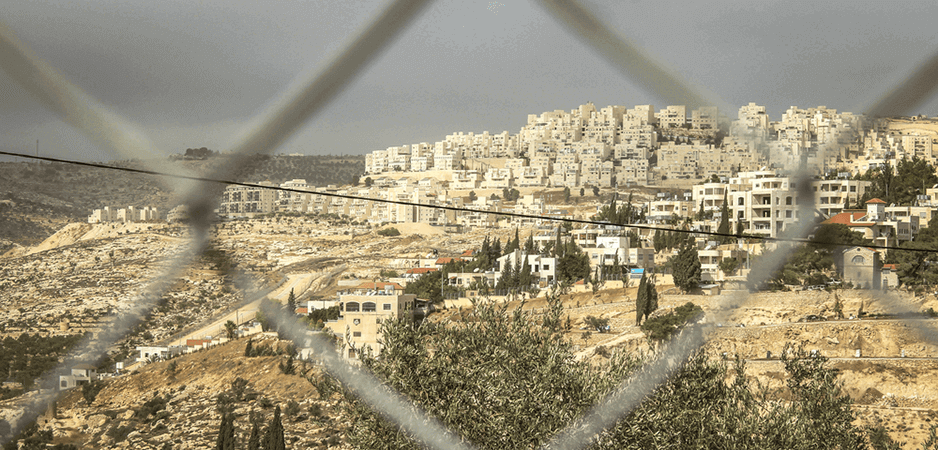The latest arena for the Qatar crisis is over in the Palestinian Territories.
Dug in for the long haul in its dispute with the United Arab Emirates and Saudi Arabia, Qatar is emerging as a key player in preventing tension between Israel and Hamas from spinning out of control. Doha’s increasing role counters Saudi and Emirati efforts to shape Palestinian politics in their mold. It further underlines the failure of Riyadh and Abu Dhabi in trying to force Qatar to bow to their will by imposing a diplomatic and economic boycott, which has been in place since June 2017.
The Qatari role takes on added significance amid the Trump administration’s cancellation of funding to the United Nations Relief and Works Agency for Palestine Refugees in the Near East (UNRWA), as well as an American-Israeli effort to terminate the UN body’s mandate and rejigger the definition of a Palestinian refugee in a bid to restrict Palestinian rights.
The role of Qatar is also likely to be a litmus test of the willingness of Gulf states to support American-Israeli policy. This takes place as the Trump administration asserts that Qatar, Saudi Arabia, and other Middle Eastern and European states would only be allowed to fund UNWRA for the time being. Israeli media reports said the White House was insisting that funders ultimately would have to align themselves with the US goal of closing down the agency and redefining who is a Palestinian refugee.
The redefinition would exclude the descendants of Palestinians originally displaced in 1948 and reduce the number of recognized refugees from 5 million to an estimated 500,000. It would undercut long-standing Palestinian insistence on the right of return of the 1948 refugees and their descendants — a demand viewed by Israel as an assault on its existence as a Jewish state and an undermining of its claim to the right of the land.
It remains unclear whether any of the multiple countries stepping in to compensate for the US shortfall are willing to accept US conditions.
Abbas Changes His Tune
But in a possible indication of a shifting playing field, Palestine Authority (PA) President Mahmoud Abbas appeared to move away from his insistence on the establishment of an independent Palestinian state alongside Israel by saying that he would entertain a US suggestion for a confederation of Israel, Palestine and Jordan. Abbas mentioned he had said as much when asked by US Middle East peace negotiators Jared Kushner, a senior advisor to President Donald Trump and his son-in-law, and Jason Greenblatt whether he would be interested in a confederation. The Palestinian leader did not say when the exchange took place. Abbas broke off all contact with the Trump administration after the US president recognized Jerusalem as Israel’s capital in December 2017.
Israeli forces have since killed at least 166 Palestinians and wounded 18,000 others who participated in recent months in regular protests along the Gaza-Israel border in demand of their right to return. In July, Israel and Hamas agreed to a ceasefire, mediated by Qatar, Egypt and the United Nations, to prevent Hamas rocket attacks and protesters flying kites with incendiary devices into Israel — to which the Israelis responded with air strikes — from spiraling out of control.
To make the ceasefire sustainable, economic support for Gaza — where growth has been severely stunted as a result of an Israeli-Egyptian blockade since 2007 and now further aggravated by the American-Israeli assault on UNRWA — is crucial. In recent months, Israeli media reported that Israeli Defense Minister Avigdor Lieberman met in Cyprus separately with Qatari Foreign Minister Mohammed bin Abdulrahman al-Thani and Qatari Ambassador to the Palestinian Territories Mohammed al-Emadi to discuss economic support for Gaza. Qatar, beyond financial muscle, has the longest-standing relations among the mediators with Hamas. Qatar has also been negotiating the return by Hamas of two Israeli nationals held captive, as well as the remains of two Israeli soldiers killed in 2014 in Gaza.
Speaking in a series of interviews, Emadi suggested Qatari funding would depend on Israel and Hamas agreeing on a sustainable ceasefire. “It is very difficult to fund the reconstruction of Gaza in an event of yet another destructive war,” he said. He said he had “discussed a maximum of five- to 10-year cease-fire with Hamas.”
Lieberman’s discussions ironically constitute recognition of Qatar’s long-standing relations with Islamists and militants, which the UAE, Saudi Arabia, Egypt and Bahrain cited as the reason for their diplomatic and economic boycott.
UNRWA and Saudi Arabia
With exception of recent pledges to support UNRWA, countries like Turkey, the UAE and Saudi Arabia have focused on gaining political influence in Palestine, rather than on economic development. Saudi Arabia and the UAE have concentrated on the purchase in Jerusalem of real estate adjacent to the Temple Mount or Haram al-Sharif, Islam’s third most holy site, according to Kamal Khatib, an Israeli-Palestinian Islamist leader, as well as Arab media reports. For its part, Turkey has sent thousands of supporters of President Recep Tayyip Erdogan’s Justice and Democracy Party to visit the city. Turkish activists allegedly participated in last year’s protests at the Haram al-Sharif.
Saudi Arabia’s position on the American-Israeli effort to undermine UNRWA and redefine the Palestinian issue is muddied by apparent differences between King Salman and his son, Crown Prince Mohammed bin Salman, who has been vocal in his support for Trump and empathy with Israeli positions.
Laying down the law, King Salman denounced the “invalidity and illegality” of the US decision to recognize Jerusalem. He told an Arab summit in Dhahran, Saudi Arabia, in April that he was donating $150 million to support Islam’s holy places in Jerusalem. The king’s moves ironically brought the kingdom closer to the outright condemnation by Qatar, Turkey and other Muslim nations of Trump’s decision to recognize Jerusalem. This, however, has more to do with King Salman’s own views as well as domestic politics in kingdom. It does little, if anything, to prevent the Qatar crisis from muddying efforts to resolve the Gaza crisis.
“A bumpy road seems to be lying ahead of Qatar … as it faces strong internal and external obstacles that impede its management of the Palestinian dossier and stops it from communicating with the rest of the regional and international parties so long as its opponents keep their veto on its movements,” said Gaza-based Palestinian historian Adnan Abu Amer.
The views expressed in this article are the author’s own and do not necessarily reflect Fair Observer’s editorial policy.
Support Fair Observer
We rely on your support for our independence, diversity and quality.
For more than 10 years, Fair Observer has been free, fair and independent. No billionaire owns us, no advertisers control us. We are a reader-supported nonprofit. Unlike many other publications, we keep our content free for readers regardless of where they live or whether they can afford to pay. We have no paywalls and no ads.
In the post-truth era of fake news, echo chambers and filter bubbles, we publish a plurality of perspectives from around the world. Anyone can publish with us, but everyone goes through a rigorous editorial process. So, you get fact-checked, well-reasoned content instead of noise.
We publish 2,500+ voices from 90+ countries. We also conduct education and training programs
on subjects ranging from digital media and journalism to writing and critical thinking. This
doesn’t come cheap. Servers, editors, trainers and web developers cost
money.
Please consider supporting us on a regular basis as a recurring donor or a
sustaining member.
Will you support FO’s journalism?
We rely on your support for our independence, diversity and quality.






